Creating Hope through Learning
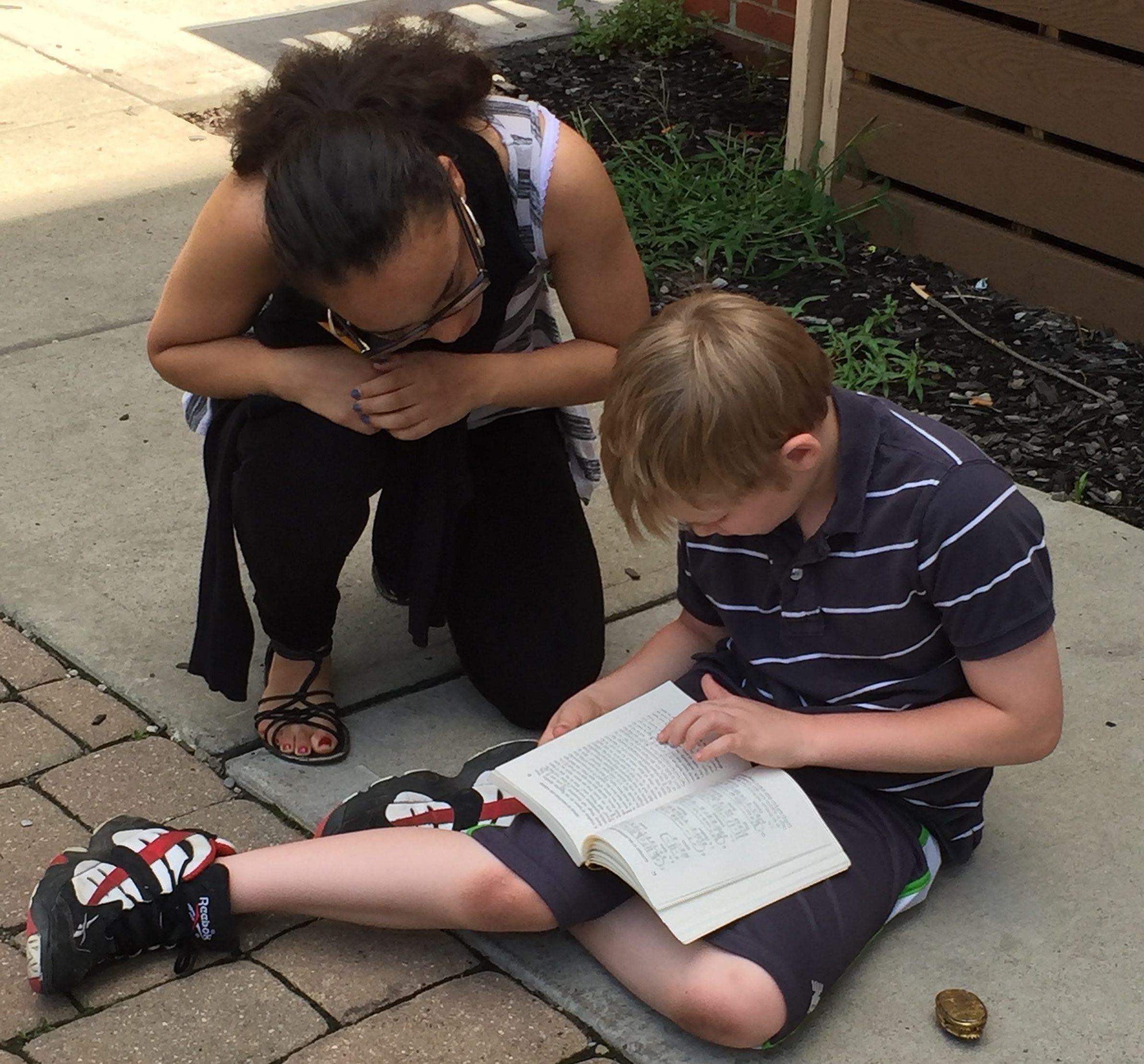
by Jiexi Wu
Carnegie Mellon University
In 2016, 3,000 children in Allegheny County experienced homelessness.
The Homeless Children’s Education Fund (HCEF) is working to address the unique educational needs of these youth. For years, HCEF has been devoting itself to providing children and youth experiencing homelessness in Allegheny County with educational resources and helping them realize their potential.
“I don’t think that people are really aware of the extent of homelessness and how it especially affects children,” says Amy Stabingas, one of HCEF’s Building Blocks afterschool programming instructors.
Amy started her work as the afterschool program instructor after she moved to Pittsburgh with her family from Seattle two years ago. She used to be a full-time teacher in a public school in Seattle, and HCEF offered her this new role when they found out about her working background as a certified teacher.
“When I first met the folks at HCEF and they told me that there were over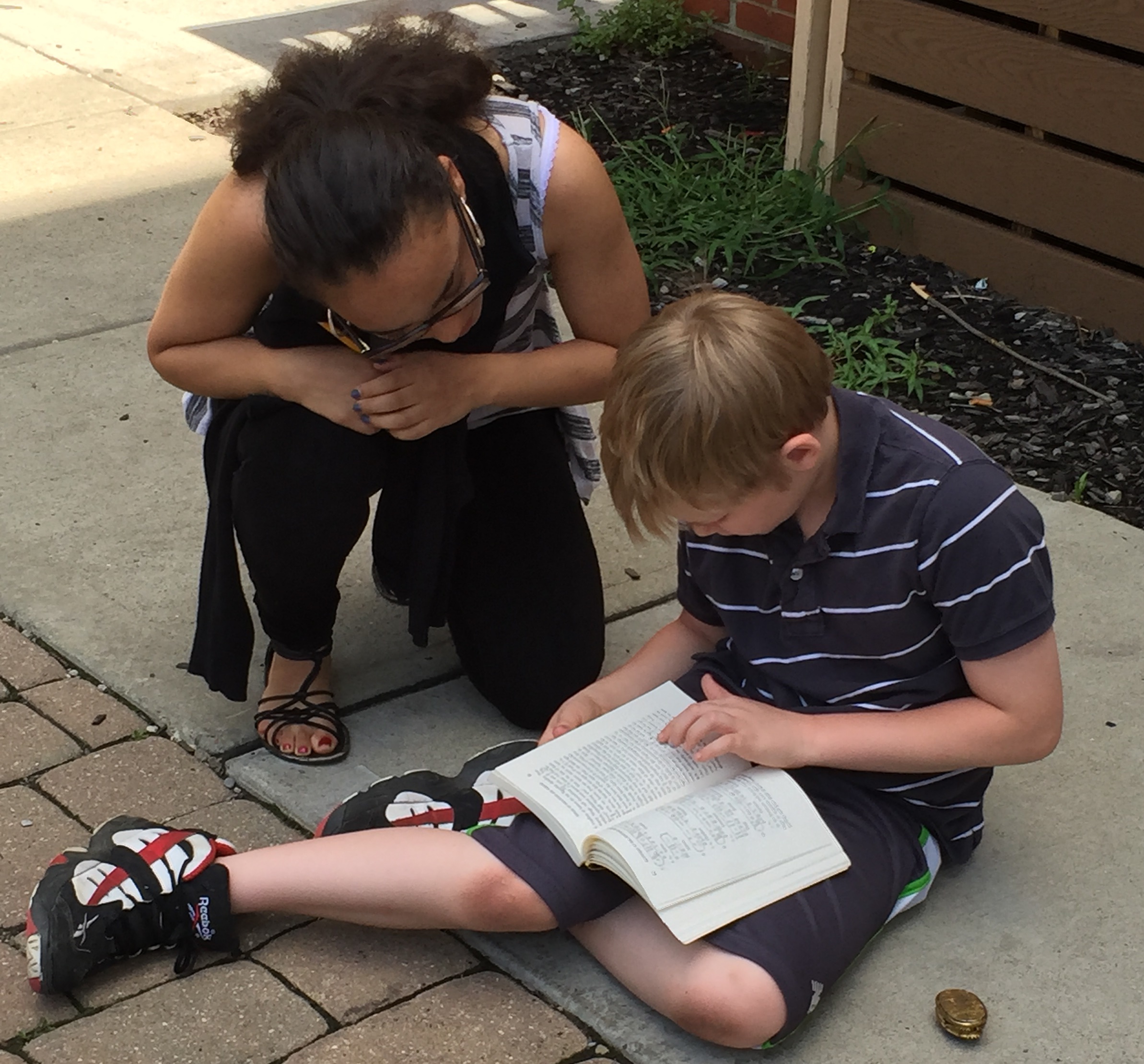 3,000 children that are homeless in Allegheny County, I was absolutely surprised,” Amy says. And as she continued her work at HCEF, she found out that many people do not really understand what it means to be homeless. “[Homelessness] does not necessarily mean that the child with their family is living in the park, or in the back of a car, or just on the streets. It means that they don’t have their own stable housing. And that often results in the child being either not going to school or getting shuttled from one school to the next. It’s really an unhealthy situation for everybody involved.”
3,000 children that are homeless in Allegheny County, I was absolutely surprised,” Amy says. And as she continued her work at HCEF, she found out that many people do not really understand what it means to be homeless. “[Homelessness] does not necessarily mean that the child with their family is living in the park, or in the back of a car, or just on the streets. It means that they don’t have their own stable housing. And that often results in the child being either not going to school or getting shuttled from one school to the next. It’s really an unhealthy situation for everybody involved.”
Laura Wengerd, a literacy consultant at HCEF, also recognizes that most people are not aware children and youth are experiencing homelessness in Pittsburgh. “Many times just in casual conversations…when I try to let people understand the nature of homelessness and point out that there were 3,000 homeless children in Allegheny County last year, usually people are shocked… because we don’t think of children as being homeless.”
Laura works with HCEF’s afterschool instructors in various shelters and conducts assessments of children’s abilities in reading and writing, and identifies the weaknesses or struggles the children might have in these two areas.
“We help the children with their homework and also just try to build their self-esteem, particularly in the area of literacy and reading,” Amy says. “We are there to give them support and help. We feel that as we support them in their education, we are giving them the tools to escape the cycle of poverty and homelessness and for a brighter future.”
The Building Blocks afterschool program is one of the many programs that HCEF established to help students with their everyday education. HCEF works closely with 27 housing agencies and shelters in Allegheny County and donates materials such as books, technology tools, and learning games to build learning spaces where children in the shelters can come every day after school and finish their homework with the help of qualified instructors.
“We have a lot of children who are in very stressful family situations. The parent could be suffering from an abusive relationship, or suffering from mental illness, or recovering from addiction,” says Amy. “And they [the children] are generally falling behind at school because of that stress.”
Laura also notices similar stresses on the children. “Children who are experiencing homelessness often have a lot on their plate. Often they are in a strange place meeting new people, and it may take a little time for some children to become accustom to it. It’s just not an easy situation to be in.”
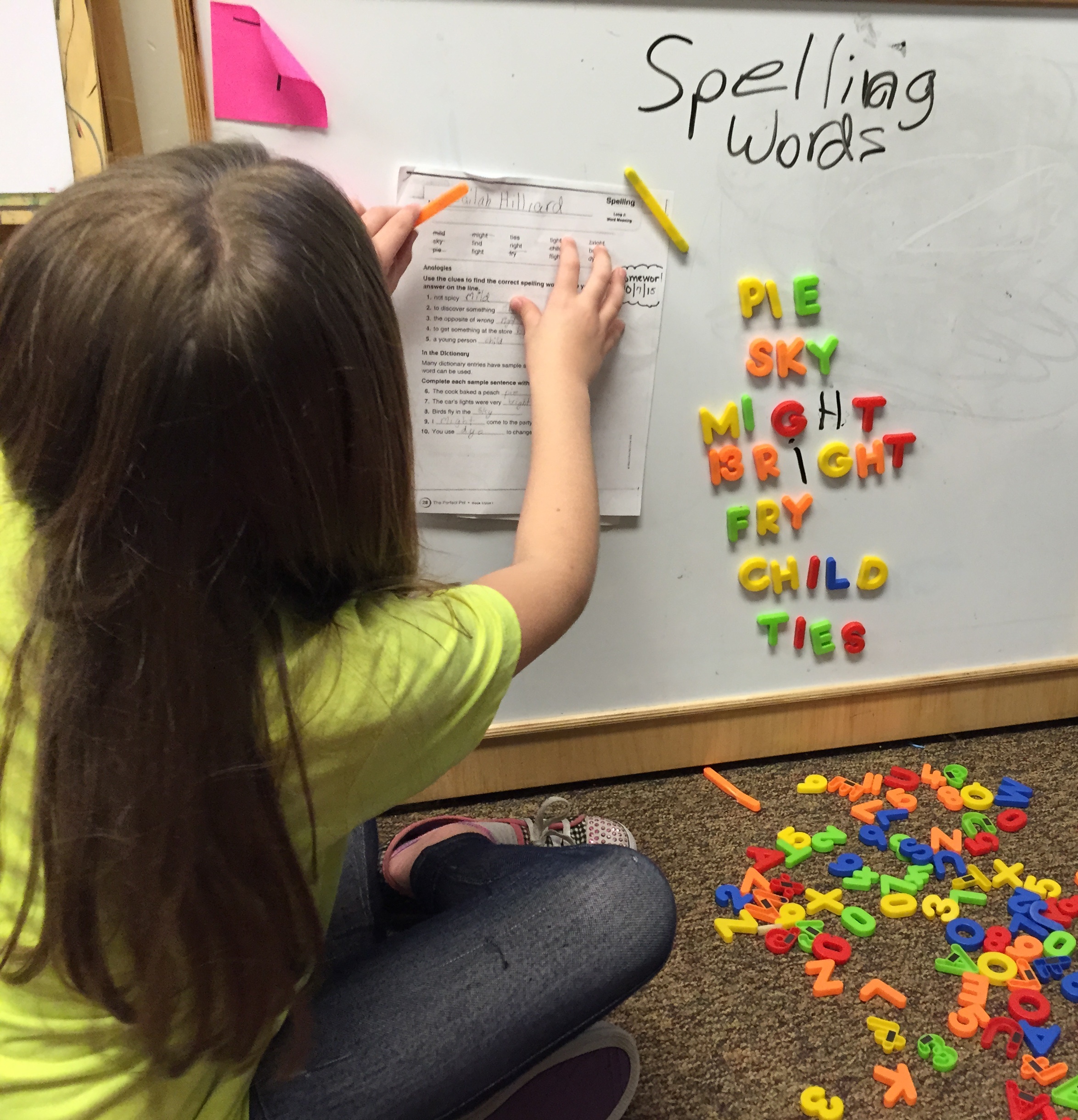
The instructors in the program provide these children with a safe and welcoming place where they can just for the moment forget about the uncertainties and tensions that are going on in their lives and enjoy their time learning.
“The children really seem to enjoy the program,” Amy says. “We greet them with a healthy snack and a big smile and hug every day, and they seem excited to be there, although not all of them are excited about doing their homework,” Amy continues, with a big smile on her face. “I feel that because we provide them with that warmth and acceptance…we are able to develop these one-on-one relationships where they do get to the point where they are looking forward to that personal interaction and willing to engage in their homework in order to have that interaction with a caring adult consistently.”
With this positive environment that the afterschool program provides, the children are making great progress both academically and socially. The stable and loving relationships the children build with the instructors help them ease the tension they are experiencing and increase both their self-confidence and self-esteem. They are able to focus on their studies, increasing their reading and writing abilities and improving their grades at school.
“I had a little boy, who is an eight-year-old and has been with us for five months. For privacy reasons, I’ll call him J.” As Amy recalled, when J first came to her, he was full of enthusiasm but also fragile emotionally. “He was very quick to become frustrated, cried very easily, but he really wanted to please.”
J was behind at school and was making Ds and Fs in his school work. As Amy continued working with J, she was able to become familiar with him and even had the chance to connect with his teacher. “This doesn’t always happen, but I was able to communicate with the teacher about where this child was needing extra support in very specific areas that they were working on in class.”
And this really helped. Instead of making Ds and Fs, J was able to make As and Bs in his homework. “Nothing makes me happier than the day he came flying down the hallway after school, waving his spelling test with an A+ on it,” Amy says. “And next time he got out his extra report card, instead of trying to hide in his backpack, he pulled it out and showed me that his grades had gone up, and he was so excited and so proud.” With the help of Amy and other instructors in the program, J was not only learning studying skills but also learning to realize that he could make progress and succeed. “It is always wonderful to see children improving. We help make them see the connection between the work that we are doing, which sometimes feels very hard, but look how it can pay off.”
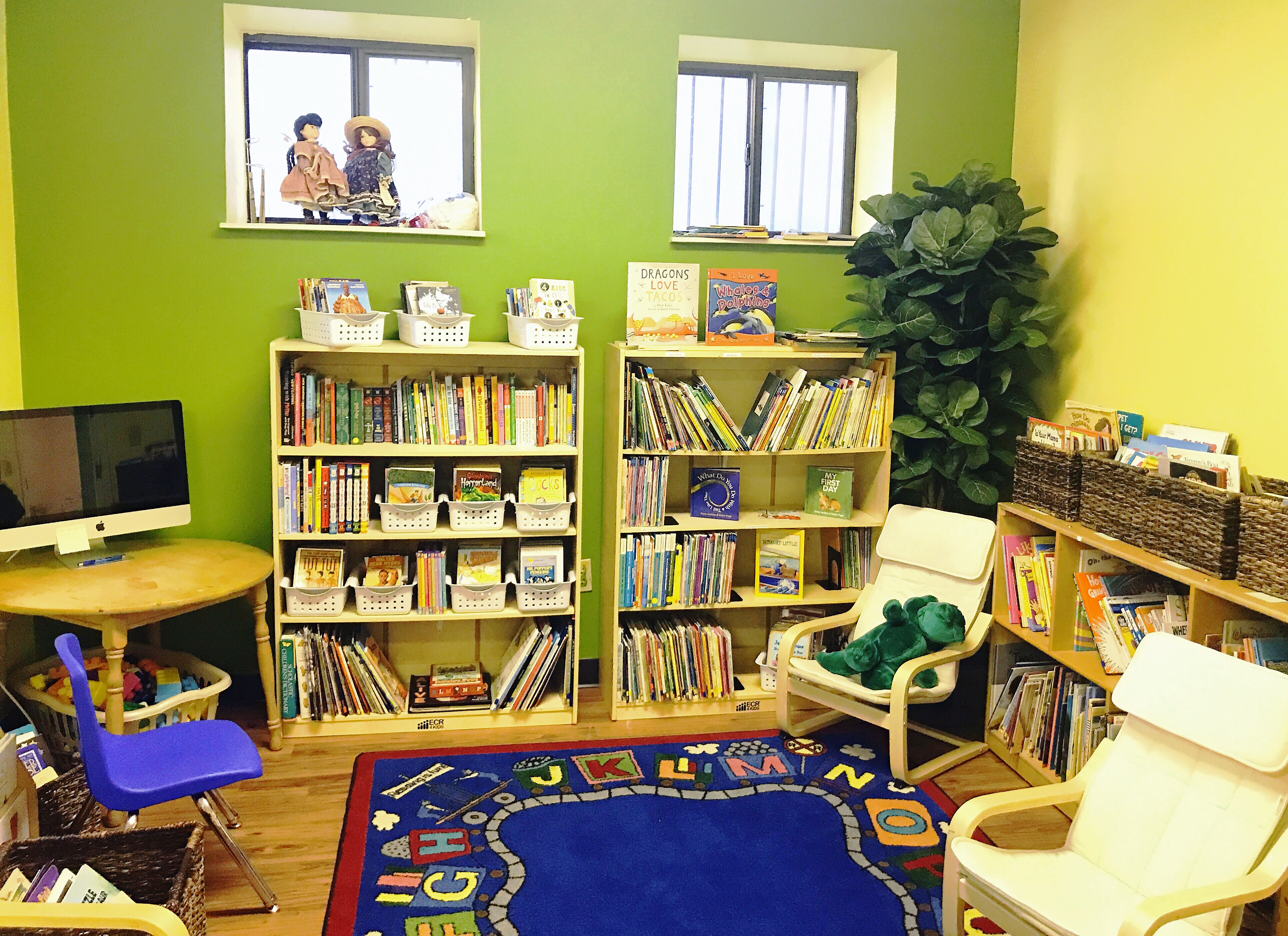
Besides engaging with the children inside the program, instructors also try to help them improve by cooperating with their parents. They see the issue of absenteeism that commonly happens with homeless children, which to a large extent affects these children’s performance at school. “Sometimes the parents don’t realize or understand, especially parents of younger children, the importance of their child being in school everyday,” Amy says. “And because the parents are under so much stress, like focusing on housing, on recovery, on getting a job, or on caring for younger siblings, they are distracted and may not focus as much they should on making that [getting their children to school] a high priority.” “So if we see absenteeism happening,” Amy continues, “another part of our job is to gently and positively talk with the parents about how much the child will fall behind every time they miss a day at school, and how important it is…to make sure that they get to school so that they can get ahead and stay on track academically.”
Laura also sees the important role that parents play in children’s education, and she thinks it is crucial for parents to understand how they can also contribute to help their children in their studies. “We have conducted a couple of programs from time to time that work specifically with parents and talked about how they can help them with their homework,” Laura says. “We try to point out to them if we see some areas of weaknesses and let them know how they can help their child move forward.”
And when I ask her how she feels about working at HCEF, Laura laughs and says, “I think I have the best job in the world. I really enjoy helping children, and I enjoy seeing them progress.” And she continues, “Actually not all children are struggling academically or struggling in the area of reading and writing. Some children are such great students and bring such great ideas to the situation. It’s just the nature of homelessness that makes it hard for them.”
Amy also sees that in the children she has worked with through HCEF. She tells the story of a middle school student that she worked with before and recalls that he was actually “very bright and very outgoing”. But because of his family situation, he had to help his mother take care of the younger child with a severe health disability. He could not finish the homework he needed to do because he had to cook and do dishes. He often could not get enough sleep at night because the young child was awake in the middle of the night, and he needed to help his mom take care of this little child. And the afterschool program, for him, was the place where he could take a break from his tiring daily routine and “be a child”. He was able to build connections with two other interns in the program from the University of Pittsburgh and “think about other possibilities to explore academically.”
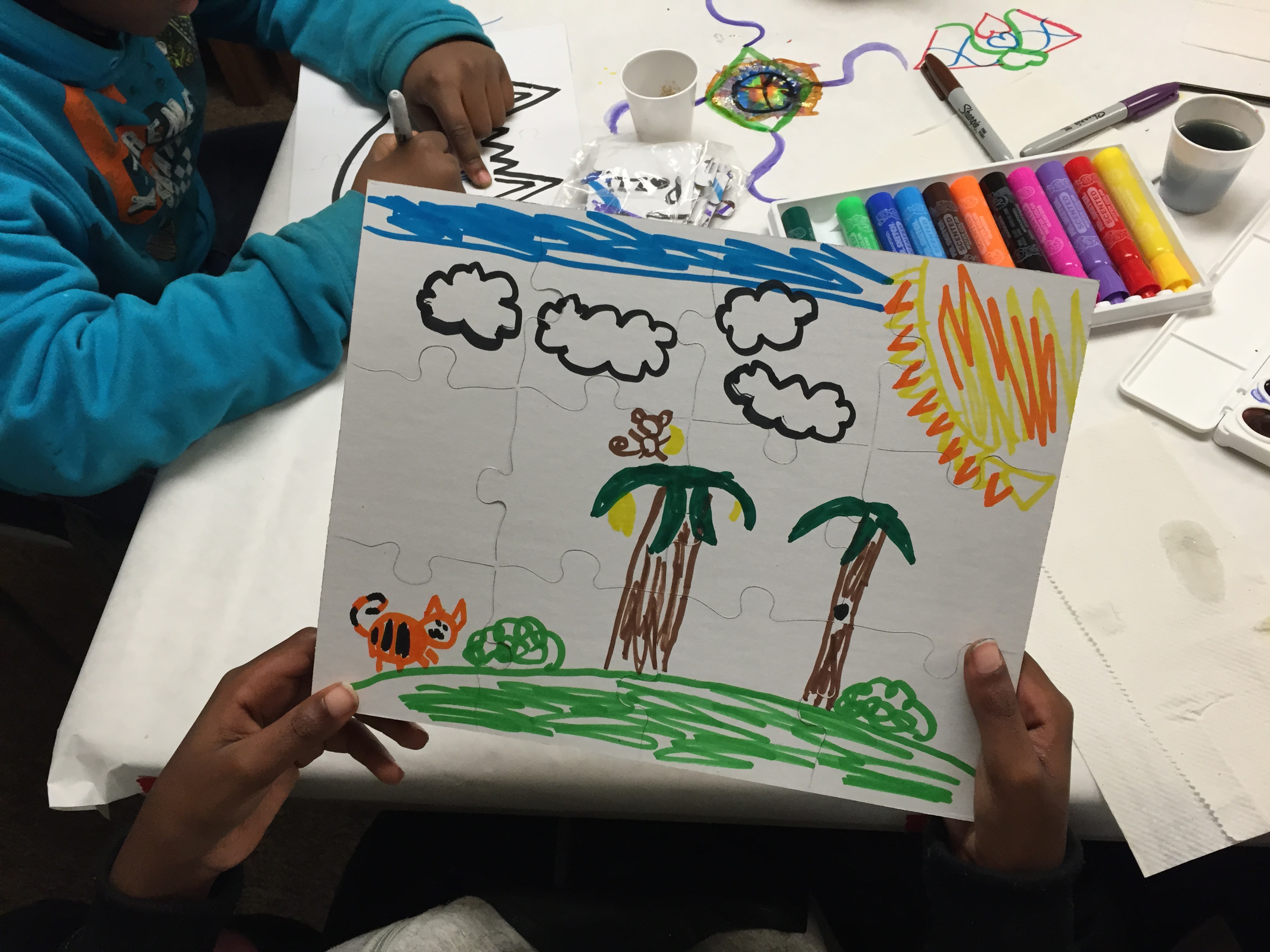
With the help of HCEF, children experiencing homelessness are able to have a place that is inclusive to them where they are accepted for who they are and are taught to have hope. “We have to have the heart for them, to understand that there’s a lot going on in that child’s life that could affect how they feel that day, could affect their work at school. Just try to be extra-understanding about that,” Laura says. “I want them to see somebody who is interested in their education. I want them to see somebody who cares about them.”
“HCEF and all of its many partners are working really hard to make sure that they [the children] are getting the support they need,” Amy says. “And the children need to be supported because all children and youth are our collective future. We need to make sure that they have the education they need to escape the cycle of poverty that their parents might have been stuck in, and that they have hope for a better future. There is always hope through learning.”
 Skip to content
Skip to content
